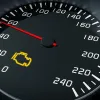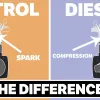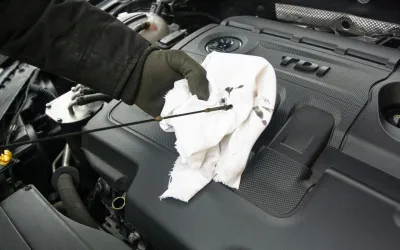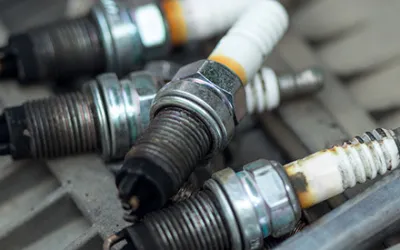A common problem that car owners experience is an oscillating idle when parked. A damaged intake gasket, an air inlet or a PCV valve can cause such problems.
Today’s modern, electronically controlled fuel systems may seem complex, but the components that operate them have not changed much over the years.
Whether your car is classic or quite new , a common problem for car owners is an engine that does not keep its speed, neither on the spot nor when running at high speed.
There are several factors that determine the idle speed of the engine. Below are some of the components that control or cause the engine idle speed to be high or low and ways you can solve these problems.
Why does the car’s idle fluctuate?
Engine idling refers to keeping the engine running when the vehicle is not in motion. In general, idle speed is sufficient to keep the engine running without stopping. The average idle speed for cars on the market varies from about 800 to 1100 revolutions per minute (RPM).
Occasionally, the engine RPM will be higher or lower than this average for several reasons. Some performance engines, such as those installed on race cars, are designed to run longer than average. In general, however, there are two problems that can cause the engine to slow down outside of specifications:
problems with the vacuum control valve;
vacuum leaks or obstruction of fuel / air flow in the combustion chamber;
It is best to call a professional mechanic to inspect the car’s engine
What causes the engine idle speed to be high or low?
On a modern fuel-injected engine, engine speed is controlled by the engine control unit (ECU) and an electrically operated damper control module. When the idle level is high or low, it could be caused by a malfunction of this system or any individual components that make up the system.
The idle air control valve controls the idle operation of the engine, allowing a certain amount of air to mix with liquid fuel and create vapors to be burned in the combustion chamber. When it fails or has problems, the impact will change the idling speed of the engine.
Components that may have an impact on engine idle speed

1. Intake gaskets
The intake gasket is designed to maintain a consistent pressure inside the engine. When the gasket fails the pressure will no longer be constant.
2. Vacuum pipes
Used to control the internal vacuum pressure inside the engine, the suction lines, as well as the intake gasket above, can cause idling problems if they are broken or not properly attached.
3. Air gallery
The function of air intake is to transfer air to the engine. When damaged, more air can pass through, which will cause the engine to idle. A damaged throttle problem will lead to the same situation, as it is no longer able to regulate the volume of air reaching the engine.
4. PCV valve
The PCV valve or crankcase ventilation system removes steam from the engine. When not working properly, the engine may run at different speeds.
5. Engine time
Idle speed also comes from engine running time. When not programmed correctly, the result is an engine that is running too fast or too slow.
All of these components can cause problems with the idle speed
Photo source: liveabout.com, carfromjapan.com, whocanfixmycar.com










